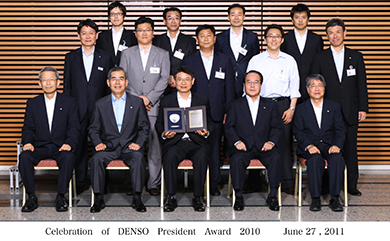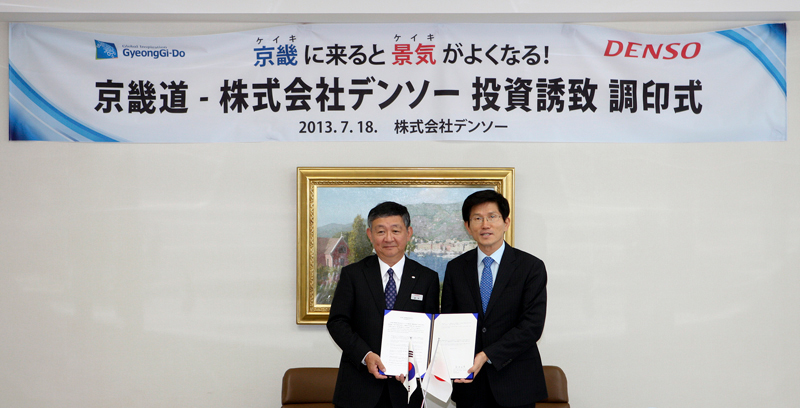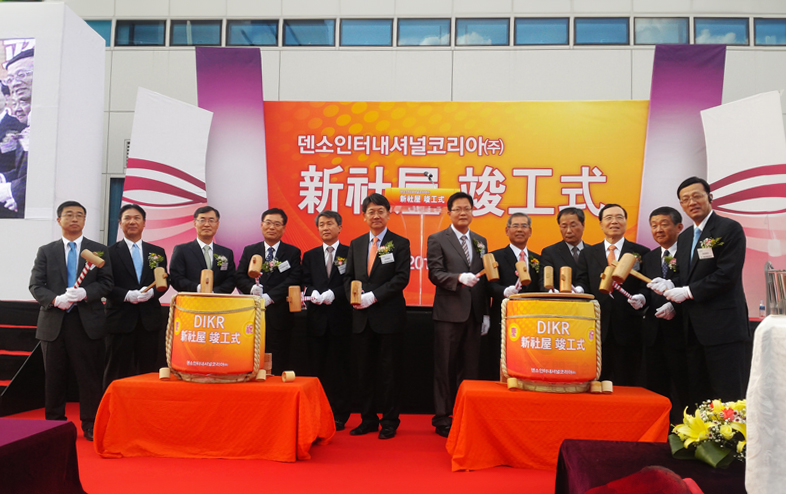2. Expansion of the automobile products field and sales growth
(3) Growth and development of DENSO Korea Sales
Since its establishment in 1997, DENSO Korea was in charge of logistics and sales as DENSO’s group company in South Korea.
In 2003, DENSO Korea Sales began selling DENSO WAVE INCORPORATED robots, expanding the market share of DENSO robots in South Korea by offering a wide range of products, from compact robots to those that could handle high, portable loads and long reach.

In 2004, the company began direct sales of diesel products such as ignition coils for spark plugs and CNG buses, high pressure pumps, injectors, common rail systems, and electronic control units. In 2008, the company expanded its sales range to non-automotive products through a lineup of automatic IDs such as hand terminals, fixed scanners, hand scanners, and RFID.
OEM of Advanced Driver Assistance System (ADAS) products, essential technology for automatic operation, began in 2012.
Furthermore, the 2010s marked a period of dramatic growth for DENSO’s Korean group companies. In 2010, the total sales of the Korean group companies exceeded 820.8 billion won, and it was only a matter of time before they exceeded 1 trillion won. The presidents & CEOs of three Korean DENSO companies—DENSO PS, DENSO PS Electronics, and DENSO Korea Sales—believed that the engine for future growth was “technology.”
DENSO Korea Sales decided to set up a technical center in Uiwang, Gyeonggi Province, in order to respond quickly to customers and grasp market trends from their perspective.

Gyeonggi Province and DENSO Investment Attraction Signing Ceremony
In July 2011, DENSO Korea Sales signed a US $56 million investment contract with Gyeonggi Province and promoted the construction of two buildings, one with four-story and one with two-story, with a site of 20,586 m2 and a total area of 7,397 m2, in Intelligent Town in Uiwang, Gyeonggi Province.

The main building of the technical center was completed in October 2013. Subsequently, the construction of a wind tunnel was continued, and the completion of the wind tunnel made it possible to carry out various experiments on research vehicles. Satisfaction with quality increased, and customer confidence was further enhanced.
DENSO Korea Sales, which built a technical center equipped with development functions to promote business at actual sites, created an opportunity not only to reinforce selling power but also to upgrade the competitiveness of the Korean automobile products industry through quality improvement for DENSO products.